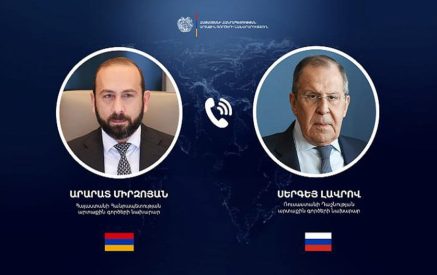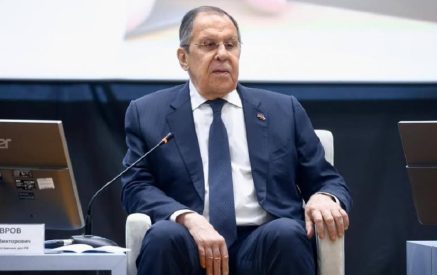June is over. What happened to the agreements reached in Vienna?
Last week, Azerbaijani Foreign Minister Elmar Mammadyarov announced that Baku is not against the next meeting of Sargsyan-Aliyev to take place in Paris. It happened as a result of the OSCE Chairman-in-Office, Foreign Minister of Germany Frank-Walter Steinmeier’s visits to Yerevan and Baku.
It was preceded by the telephone conversation between French and Russian Foreign Ministers Sergey Lavrov and Jean-Marc Ayrault, and earlier, one day after the St. Petersburg meeting, the offer of Paris that France is ready to hold the next meeting of the presidents of Armenia and Azerbaijan in its ground.
The tripartite meeting in St. Petersburg trilateral in itself was a three-sided violation of the Vienna agreements, which was initiated by Moscow, which Baku reacted delightedly, while Yerevan was simply “detained” because it is obvious how much damage such a meeting harms the interests of Armenia and NKR. The result was appropriate: the Vienna agreements to exercise permanent monitoring of the ceasefire regime, investigate the incidents of these violations, there was no specific word in the statement about the expansion of the powers of Andrzej Kasprzyk’s office. While in Vienna, it was fixed that these mechanisms would be finalized in the June meeting. However, Moscow did not forget to fix in the Petersburg document that such meetings must be continued in “this format” and “parallel” to the Minsk Group co-chairmanship format…
Read also
In fact, with the meeting in St. Petersburg, Moscow made an attempt to conceal the Vienna agreements and lead the process to a deadlock reasoning the future fate of the process with the necessity of reconciling with its own interests.
In addition, on June 30, Armenia was imposed on the ratification of the agreement on single air defense system, which provides an additional and powerful lever to Moscow in the region. Certainly, this has nothing to do with Armenia’s interests and moreover, the security. No matter how the tale-tellers of the government argue the opposite (as it has happened in such cases, starting from the infamous deals related to energy sector and ending with degrading and harmful process associated with EaEU), anyway, it significantly weakens Armenia’s position in the NKR negotiation process and limits the ability to ensure a posture driven by own interests. It is not serious when they are trying to prove to us that handing over the keys of the heavens to the main supplier of offensive weapons to Baku and calling it an “alliy” derived from Armenia’s interests …
The liveliness of German, French and American diplomacies, the telephone talks with Lavrov initiated by the leaders of the foreign ministries of these countries, Steinmeier’s visit to the region – all of this enabled to have a continuity of the process in Paris, and it will not be Russia’s “exclusive”, which is capable to simply wangle the philosophy of the talks from concessions towards the Russian-Azerbaijani deal on the account of Armenia’s benefit. Yet, it is a question whether Armenia will take the advantage of it.
It is clear that Russia will continue its efforts not to miss the Petersburg “achievement” from its hands, and this pendulum will once again turn to the Russian side when Lavrov will visit Yerevan and Baku. The Karabakh conflict is the Kremlin’s “most favorite” conflict and it is clear why it is so. The West also clarifies its policy towards Russia and the post-Soviet space. On July 8-9, Warsaw will host the NATO summit, where the Western Partnership strategy will obtain clear outlines, Russia’s aggressive policy including in the post-Soviet space should be restrained and suspended, and the whole military and non-military instrumentation will be put to action. The Russia-NATO Council session is already scheduled for July 15 where apart from the issue of security threats in Baltic Sea which is already published, there will be many other issues for the discussion.
Quite a difficult period is to be expected for Armenia whose positions are not firm enough to be able to take advantage of the opened opportunities. Moreover, Yerevan continues to take steps that furthermore weaken its positions and continues its fragmentary, illogical and inconsistent policy. While the matters are clear: Karabakh must return to the negotiation table as a full-membered entity, any concessions from the Armenian side that are of the “interest” to Baku could be considered only when Baku unreservedly acknowledges the right to self-determination of NKR by legally binding referendum, which the US offers. The main obstacle Armenia and Nagorno Karabakh in this matter is not only and not so much Baku as Moscow. And after all, the West is not obligated to stretch its helpful hand to official Yerevan that behaves like a “helpless patient” and one day, this “charity” can be over…
Ruben MEHRABYAN























































